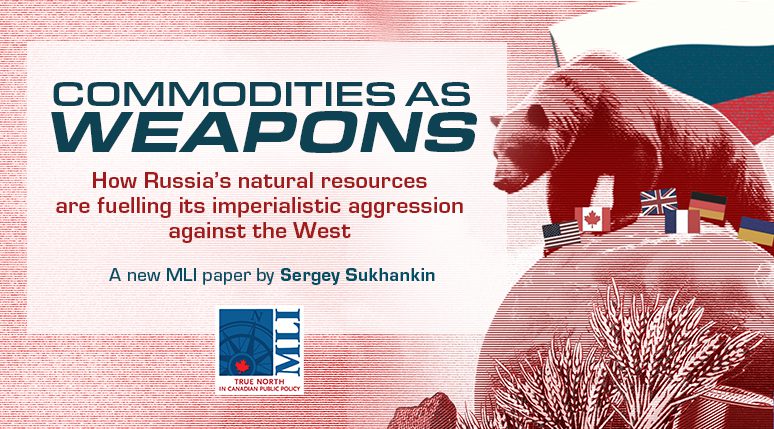By Sergey Sukhankin
October 31, 2024
Executive Summary
Russia’s large-scale invasion of Ukraine in February 2022 caused a series of economic and geopolitical shocks that have jolted the world’s economy and security. However, the Western approach to punishing Russia’s aggression through economic sanctions is flawed, and so far, has failed to stop Russian President Vladimir Putin’s war against Ukraine.
Since the fall of the Soviet Union in 1991, Western countries have overestimated the transformative power of the free market economy. The West willingly made Russia its largest supplier of commodities and materials and expected it to follow the path of other previously totalitarian regimes – such as Japan, Germany, and Italy – and become a “normal” European country. Instead, Russia has reversed course and is now a militarizing authoritarian power.
Today, Russia holds dominant global positions in natural resources and commodities including hydrocarbons, foods, critical metals, and fertilizers. This paper examines how Russia’s exports, especially in agriculture (grains and fertilizers), critical minerals (uranium, titanium, nickel, aluminium), and coal, are fuelling the Kremlin’s war machine in Ukraine, while also challenging and undermining the global financial-economic architecture and established principles of international trade.
The West’s reliance on Russian goods and commodities gives Putin crucial leverage, while exposing their economies to the potential of economic blackmail from Russia. For Canada, this presents a historic opportunity to supplant Russian exports with Canadian goods and commodities.
The paper’s key conclusions include:
• Despite Russia’s seemingly strong competitive advantages, its economy is now feeling the strain of the sanctions imposed following Putin’s invasion of Ukraine in 2022 and its ongoing rift with the West. Russia’s attempt to re-orientate towards Indo-Pacific markets has resulted in lower profits, a need to redirect logistics, and increased dependence on China, which can now determine the conditions of trade.
• Russia is a major global supplier of grains and fertilizers. Moscow can and will use this fact as a geopolitical weapon to redirect its exports to so-called “friendlycountries” and to create artificial shortages in countries of the Global South. Such shortages could lead to regional political destabilization and ultimately harm the West.
• The situation with critical metals is complex. Critical minerals were excluded from the economic sanctions imposed on Russia in 2022. However, the US and the UK introduced sanctions on them this year. Weaning the West off some categories of Russian critical metals (e.g., titanium and nickel) will take time – and political will. For other critical minerals (e.g., uranium) Russia is likely to implement a broad range of measures that will make it harder for the West to diversify its supplies. Further, in a bid to overcome the pressure of sanctions, Russia will intensify its integration with China by transferring parts of the production cycle to this country.
• Russia’s coal industry is currently one of the Putin regime’s top cash cows. However, the cumulative effect of Western sanctions, decreasing coal consumption in Europe, and protective barriers erected by Russia’s Asia-based top customers have effectively made coal production in Russia economically unsustainable.
It’s clear that importers of Russian goods and commodities have made a bargain with the devil. They simply cannot afford to continue to rely on rogue nations that violate human rights and international law.
With Russia now a pariah to many democratic nations, Canada has a unique and historic opportunity to capitalize on the situation. Canada’s vast resources – comparable to those of Russia’s – position it well to supply the needs of Russia’s former clients.
There are many reasons to choose Canada, including its reliability as a supplier, its support for democracy, its peaceful foreign policy, and its support of free market economies. It also adheres to the environmental pillar of the Triple Bottom Line (TBL) – which makes its exploration and production methods commensurate with world’s highest standards. Canada’s stable political tradition also stands in stark contract with Russia’s descent into authoritarianism.
Waiting for Russia to “change” is a dubious proposition. Now is the perfect time for Russia’s importing partners to forge stronger economic ties with Canada. At the same time, Canada needs to be open for business. The fate of the free world depends on Canadian resources and goods reaching its strategic partners. This is truly a historical opportunity for Canada.
Read the full paper here:







